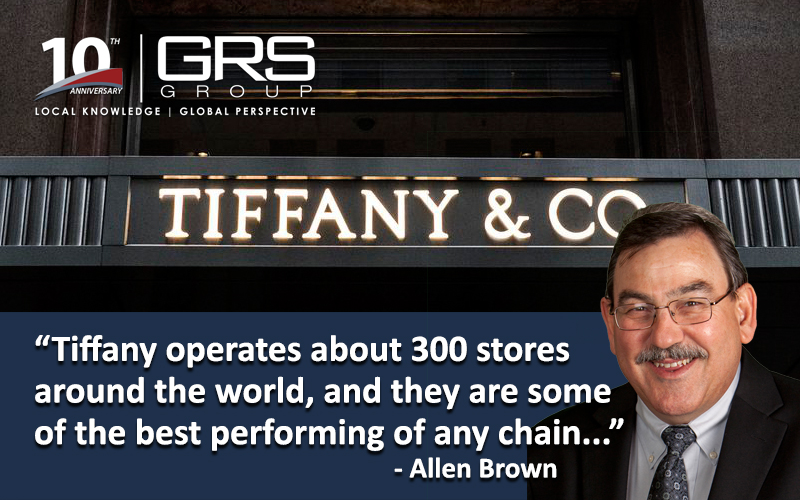Based in Scottsdale, AZ, Allen Brown is vice president of GRS Title. He can be reached at 480.428.5575 or via email at [email protected]
It makes sense that LVHM Moet Hennessey Louis Vuitton would want to buy Tiffany & Co., even at a significant $14.5-billion price tag. Luxury knows luxury, after all, and the fit would make sense for the former of the two, globally expanding its high-end reach,
Tiffany operates about 300 stores around the world, and they are some of the best performing of any chain in terms of sales per square foot, at about $2,800. Though the acquisition is not yet a slam dunk, and Tiffany could entertain other higher offers, its portfolio would fit nicely within LVMH, which operates 4,590 stores around the globe, under brands such as Louis Vuitton, Bulgari, Fendi, Marc Jacobs and others.
As for Tiffany, its last fiscal year had sales of $4.4 billion, with year-over-year same-store sales up seven percent. The company’s net earnings were at $586.4 million, up from $370.1 million in the prior fiscal year.
So how has the luxury retail sector been faring as a whole?
An International Council of Shopping Centers (ICSC) report released in June found that luxury spending (vehicles, vacations, retail and other goods and services) in 2018 totaled $1.2 trillion, increasing five percent from the prior year. Personal-luxury retail goods made up $260 billion of that and rising six percent, and it’s poised to see between three percent and five percent growth annually through 2025.
Younger consumers are reportedly playing a big role in luxury retail’s future. Millennials and Gen Z consumers are expected to make up 55 percent of the overall market by 2025, according to ICSC. It cited data from research firm GlobalWebIndex that said 67 percent of those who regularly shop for luxury goods are between the ages of 25 and 44. As a result, luxury brands are making major investments in their digital capabilities to cater to this these tech-savvy generations. As of 2018, 90 percent of all high-end retail purchases were made in stores, but to attract younger shoppers, it is expected that the share of omni-channel sales will increase.
As with other types of retail, experiential features are increasingly important in luxury stores. ICSC says: “Given that price and quality are no longer the only indicators of luxury, brands are providing a personalized service and premium in-store environment to generate added value to consumers.” Examples the organization uses include World of Niche, an appointment-only footwear store in Lower Manhattan that offers a mysterious experience, and also in New York, a Chanel flagship lets customers sample beauty products on their own and also has an appointment-only beauty bar.
Demand shouldn’t lessen significantly in this retail segment any time soon, according to Boston Consulting Group. Though it’s expected to slow a bit due to a potential economic downturn, global wealth is forecast to have a compounded annual growth rate of 5.7 percent through 2023.
About GRS Group
GRS Group is a leading provider of commercial real estate (“CRE”) services worldwide. With offices across the United States, Europe, and affiliates around the globe, GRS Group provides local market knowledge with a global perspective for institutional real estate investors, occupiers and lenders worldwide. The GRS Group team has evaluated and advised on over $1 trillion in CRE transactions.
Through the company’s proprietary management process, Global Services Connection, GRS Group delivers an integrated suite of services including Financial Advisory, Transaction Management, Assessment and Title Insurance. We provide a single point of contact, capable of leveraging the GRS Group portfolio of companies and delivering customized solutions to assist our clients in achieving their investment goals.

